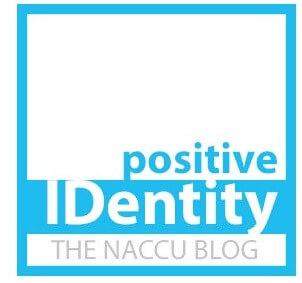Are Campus Credentials the Secret Sauce for Student Success?
Are Campus Credentials the Secret Sauce for Student Success?
We’ve all heard it before: student success is about engagement. But how do you actually measure engagement beyond surveys and good intentions? According to new research presented by Paul Schantz from Cal State Northridge, the answer might be hiding in plain sight: your campus credential program.
In a webinar hosted by NACCU, Paul walked us through his dissertation research (yes, actual dissertation level research!) to find out whether campus card systems, the tech behind meal plans, rec center check ins, and door access, are doing more than just letting students swipe into buildings. Could they actually be helping students stay in school and graduate?
Spoiler alert: the answer is yes.
Campus Cards as a Data Goldmine
One of the key points Paul drove home is that campus cards are more than ID badges. They are real time engagement trackers, kind of like grocery store loyalty cards but for student life. And when you think about it, it makes sense: card swipes are tangible evidence that students are showing up, whether it is to the dining hall, the gym, or a club meeting.
While many campuses are using card data for one off reporting such as who showed up to the spring concert, Paul’s research shows that only a small percentage are analyzing that data more deeply to look at trends or long term engagement patterns.
And that is where the opportunity lies.
Key Findings That Might Make You Rethink Your Reporting
Let’s get to the good stuff, the actual data. Paul surveyed NACCU member campuses and pulled in info from IPEDS and the NACCU Campus Profile to test some big questions.
Here’s what he found:
-
Campuses that measure more events using card data see higher retention rates. When campuses tracked attendance at four or more event types, student retention improved measurably.
-
Graduation rates also improved, but only when campuses used that event data as part of a broader effort to support retention.
-
Reporting matters. The more sophisticated the reporting from card data, the more likely it is that the campus sees a positive impact on student outcomes.
-
Most card office admins know the value of their data, but many feel senior leadership doesn’t quite get it yet. There’s a communication gap between the card office and campus leadership that’s holding back broader use of these insights.
So What’s Holding Campuses Back?
Paul asked card office leaders what barriers are in the way of using card data more effectively. The top five were data silos, limited staff, budget constraints, privacy concerns, and perhaps most importantly a lack of a campus wide data sharing culture.
But here is the twist: none of those barriers ranked as “huge.” Most hovered in the middle, which suggests the potential is there, it just needs a little push.
One Person Can Make a Difference
Here’s another stat worth highlighting: a significant chunk of campuses run their card offices with just one person. And many of those solo heroes are the ones pulling data, running reports, and pushing the boundaries of what is possible with card systems.
So if you are in a small shop, you are not alone, and your work matters.
Why This Matters Now
With more institutions facing enrollment cliffs, retention has never been more important. As Paul reminded us, it is always easier and cheaper to retain a student than to recruit a new one. And if your campus card system can help you understand who is engaged and who is not, you have got a powerful tool for keeping students on track.
Even if your card program is not yet driving major analytics, this research is a clear call to action: your data matters. Your card swipes matter. And yes, your campus credential system might just be the secret weapon in improving retention and graduation.
Stay tuned for Paul's full dissertation in the NACCU Vault and maybe even a follow up webinar. Until then, take a fresh look at your card data. You might be sitting on insights that could shape the future of your students.

